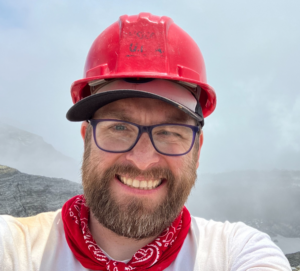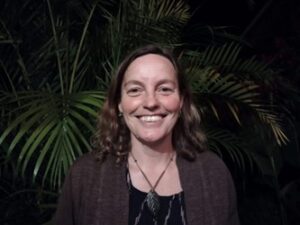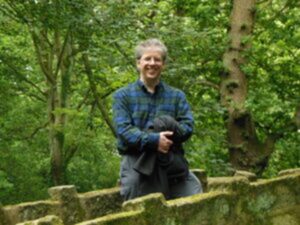The VMSG Award
The VMSG Award may be made annually to an individual who is deemed to have made a significant advance to our understanding of volcanic and magmatic processes and who has made substantial contributions to the research community. The Award winner will have the opportunity to present their research as a keynote talk at the annual VMSG conference in January.
Please see the Award Guidelines for eligibility criteria and full information.
The awarding panel will take into consideration the following points to assess whether the application describes and evidences a researcher who has had a substantial influence in their academic field and research community:
- Research outputs (40%) – Are the nominee’s research outputs robust, innovative, insightful, ethical and collaborative?
- Community contributions (40%) – Has the nominee made strong and committed contributions to the research community and environment? For example, through promoting an equitable, diverse and inclusive culture, a commitment to public engagement or science communication, or convening impactful workshops or conferences.
- Impact (20%) – To what extent has research by the nominee contributed “societal impacts” (tangible benefits to society, economy, environment or culture) or “academic impacts” (major advances in knowledge and understanding)?
Nominations should be made using the VMSG Award Nomination Form and should be sent to the VMSG Awards Officer (k.j.chamberlain@liverpool.ac.uk) by 15 September 2025.
Past winners:
2025: Prof. Michael Heap (Université de Strasbourg)

Mike has been an active member of the VMSG community for many years and amongst his substantial and interdisciplinary academic contributions to volcanology he has also been a strong advocate for open science, equitable collaboration and in supporting early career researchers globally – all of which are strongly in the spirit of the award. Mike received the VMSG Award at our annual conference in Dublin, where he presented a keynote lecture.
2024: Prof. Clive Oppenheimer (University of Cambridge)

Clive has an incredibly distinguished career and given insights into volcanic systems around the world. Clive was invited to deliver a keynote lecture at VMSG2024 in Bristol. Find Clive’s research here. And he’s got his own Wikipedia page – find it here!
2023: Prof. Eliza Calder (University of Edinburgh)

The committee wished to recognize Eliza’s diverse research outputs, significant community contributions, and the societal impact of her work; recognizing also that Eliza’s work speaks to the wide range of interests of the VMSG community and the sectors to which they contribute. The award was bestowed to Eliza at the annual VMSG meeting hosted in London in January 2023.
2022: Dr Dan Morgan (University of Leeds)

Dan is Associate Professor of Igneous Petrology & Volcanology at the University of Leeds, UK. Dan describes his work: “My research interests stem from the interplay of crystal textures and crystal zoning in volcanic rocks. Much of my work has looked at diffusion within crystals as a mechanism to place constraints on short-term volcanic processes occurring in the days and months prior to eruption. Current work is looking at how we can better refine the models used to incorporate dynamic links between crystal growth and simultaneous diffusion to avoid convolving effects.” The VMSG Award was presented to Dan at vVMSG2022, where he gave a keynote presentation.
2021: Prof. Ed Llewellin (University of Durham)
2020: Prof. David Pyle (University of Oxford)
2019: Dr Marie Edmonds (University of Cambridge)
2018: Dr Hugh Tuffen (University of Lancaster)
2017: Dr Susan Loughlin (British Geological Survey)
2016: Prof. Yan Lavallée (University of Liverpool)
2015: Prof. Jenni Barclay (University of East Anglia)
2014: Prof. Jon Davidson (Durham University)
50th Anniversary Lifetime Achievement Award: Prof. Steve Sparks (University of Bristol)
2013: Dr Mike Branney (University of Leicester)
2012: Prof. John Gamble (University College, Cork)
2011: Prof. Valentin Troll (University of Uppsala)
2010: Dr Stephen Blake (The Open University)
2009: Dr Ken Thomson (University of Birmingham)
2008: Dr Marian Holness (University of Cambridge)


